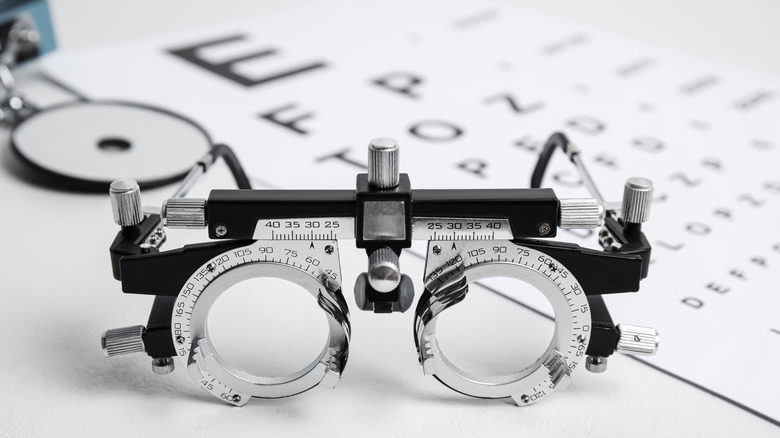The Carrot Myth That Bizarrely Started From WWII Propaganda
If you loved carrots as a kid, you may have been warned by adults that eating too many of them might turn you into one. There has yet to be a confirmed case of a human sprouting a leafy stalk from their head after gorging on carrot sticks, but the sentiment isn't entirely made-up. Dermatologist Dr. Melissa Piliang explained to the Cleveland Clinic that the abundance of the beta-carotene pigment in carrots can, in fact, lead to a condition called carotenemia. This casts a yellowish-orange tint over the skin of carrot fiends. Apricots, cantaloupe, pumpkins, and other orange foods pose the same risk.
With that said, carrots are also high in vitamin A, which makes them beneficial for eye health. If you were a kid who didn't eat carrots, you may have been lured toward them with the promise that they'll help you see in the dark. Evidently, children aren't the only ones who were fed this myth. During World War II, British forces used the tall tale — some say they even invented it — as a military tactic.
A nutritious hoodwink
John Stolarczyk, the U.K.-based curator of the virtual World Carrot Museum, is a World War II buff, an expert on carrot history, and the author of the forthcoming book, "How Carrots Helped Win World War II." He told Smithsonian Magazine that, during the Blitzkrieg in the early 1940s, the British Government would shut off all the lights in the city to make it harder for German planes to attack their targets. The Royal Air Force deployed new radar technology, Airborne Interception Radar, which allowed them to identify enemy bombers before they rolled into the English Channel and posed a real threat.
The Brits didn't want their blackout-attack secret leaked to the German Luftwaffe, so they started a rumor that their soldiers ate a lot of carrots and could see in the dark as a result. "Somewhere on the journey the message that carrots are good for your eyes became disfigured into improving eyesight," Stolarczyk told the magazine. Did the ruse work? That's debatable.
Popular belief is a powerful drug
"I have no evidence they fell for it, other than that the use of carrots to help with eye health was well ingrained in the German psyche," John Stolarczyk, U.K.-based curator of the virtual World Carrot Museum, told Smithsonian Magazine. "It was believed that they had to fall for some of it." He cites rumors that say Germans fed their military pilots carrots, just to be on the safe side. Advertisements with claims such as, "Carrots keep you healthy and help you see in the blackout," were prolific. Another ad showed a rifle-bearing British soldier behind a sign that read, "Eat carrots or leafy green and yellow vegetables ... rich in vitamin 'A,' essential for night sight."
It's true that the vitamin A in carrots can improve cases of night blindness caused by cataracts, which makes it hard to see in low light. All things considered, it's easy to see why the myth of carrot-fueled night vision sounded plausible before the internet existed.


